2019 Fiscal Summit: Building America's Future | Peter G. Peterson Foundation
Body

2019 Fiscal Summit Video
Building America’s Future
Americans care deeply about the future of our country. We aspire to live in a nation with widespread opportunity, a positive leadership role in the world, and a bright future for generations to come.
Amid the debate over national priorities, one thing is certain: to build America’s future, our nation will need significant resources. Fiscal sustainability is critical to meeting our challenges over the long term — it represents the foundation for our ability to address the needs and ambitions of our society.
However, there is real concern across America that we are not on the right course. Now and over the coming decades we face many critical, interconnected challenges, including: rising inequality, unaffordable healthcare, a changing climate, faltering infrastructure, failing education, and new and unpredictable security threats. Americans’ concerns about these issues are rising, while our fiscal condition and ability to address them are falling.
The Peter G. Peterson Foundation’s 2019 Fiscal Summit: Building America’s Future brought together leaders, experts and policymakers to discuss how to build a sustainable fiscal future to put America on a path for prosperity, leadership and growth. Our nation’s future is at stake, and we owe it to coming generations to set a stronger, smarter and more responsible foundation for the future of America.
Featured Participants
-
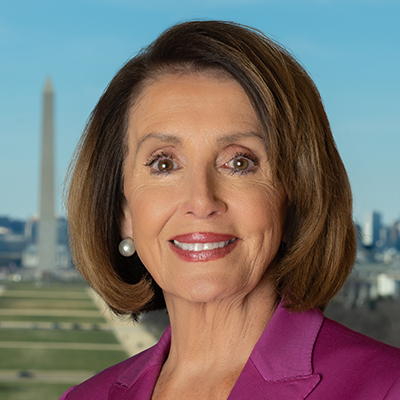 Speaker Nancy Pelosi (D-CA)
Speaker Nancy Pelosi (D-CA) -
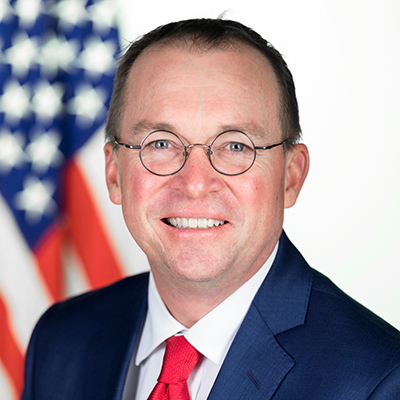 Mick Mulvaney
Mick Mulvaney
-
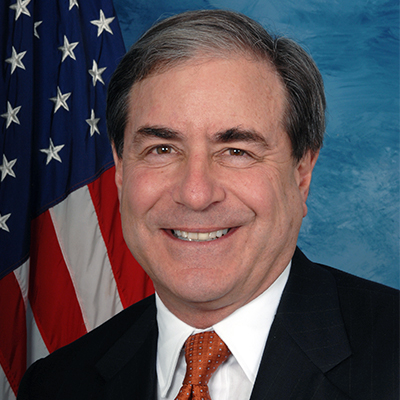 Representative John Yarmuth (D-KY)
Representative John Yarmuth (D-KY)
-
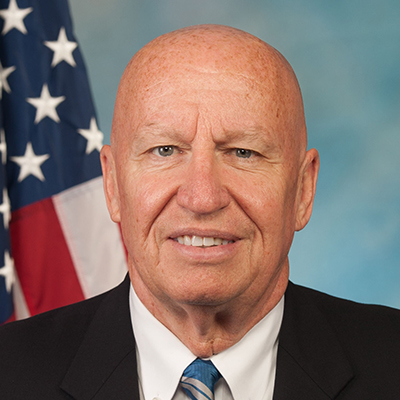 Representative Kevin Brady (R-TX)
Representative Kevin Brady (R-TX)
-
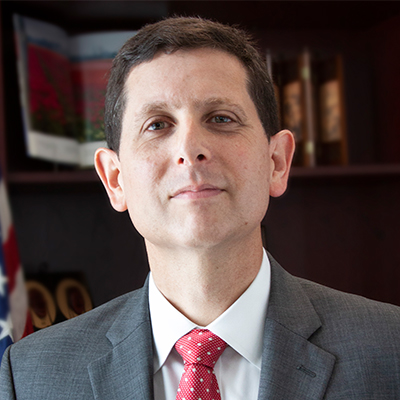 Phillip Swagel
Phillip Swagel
-
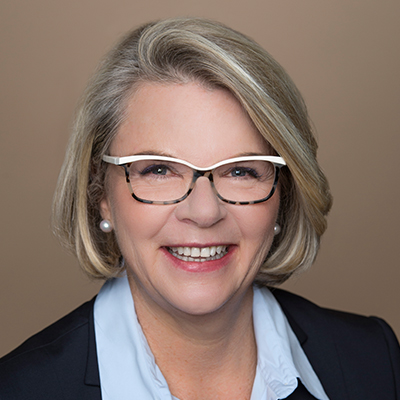 Margaret Spellings
Margaret Spellings
-
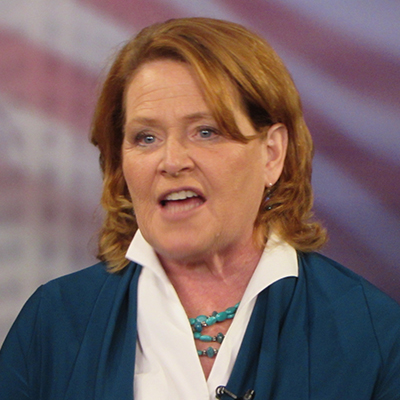 Senator Heidi Heitkamp
Senator Heidi Heitkamp
-
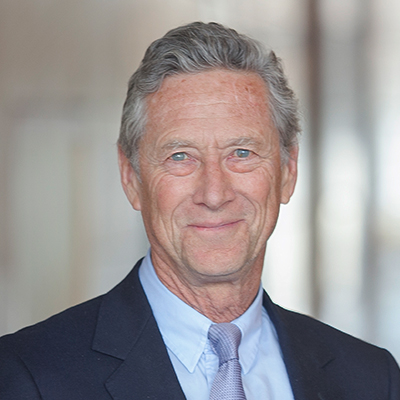 Olivier Blanchard
Olivier Blanchard
-
 Beth Ann Bovino
Beth Ann Bovino
-
 Lanhee J. Chen
Lanhee J. Chen
-
 William H. Frey
William H. Frey
-
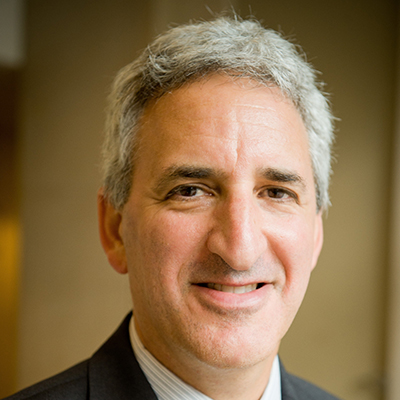 William Gale
William Gale
-
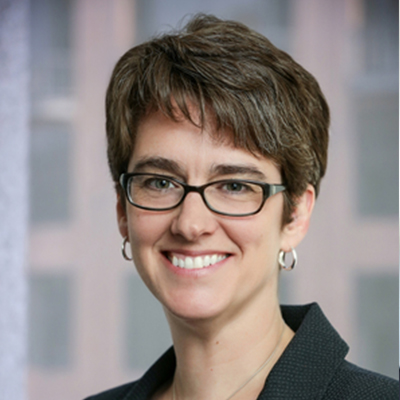 Heather Hahn
Heather Hahn
-
 Philip N. Jefferson
Philip N. Jefferson
-
 James Poterba
James Poterba
-
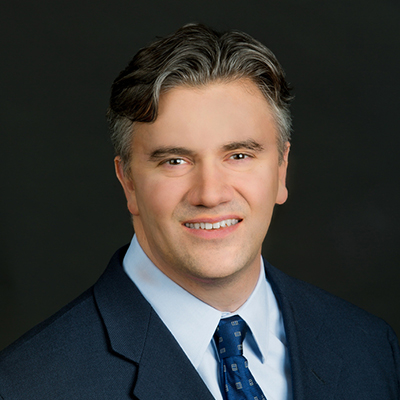 Kent Smetters
Kent Smetters
-
 Greg Ip
Greg Ip
-
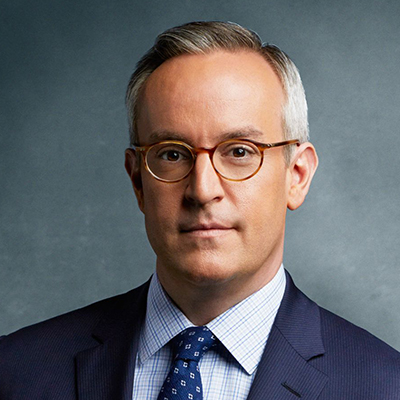 Eamon Javers
Eamon Javers
-
 Stef W. Kight
Stef W. Kight
-
 Heather Long
Heather Long
-
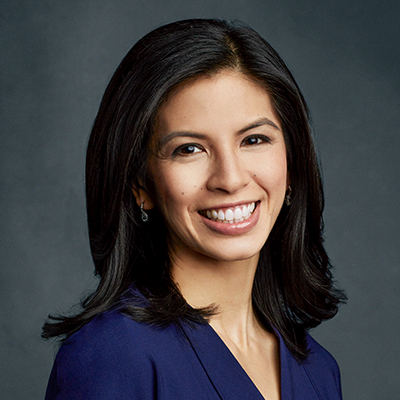 Ylan Q. Mui
Ylan Q. Mui
-
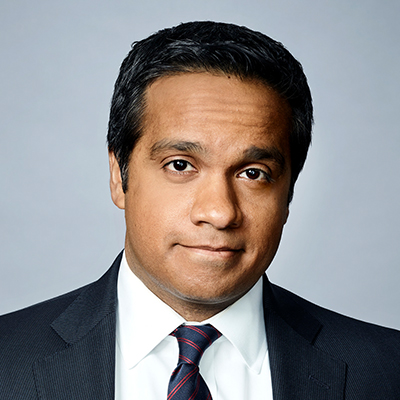 Manu Raju
Manu Raju
Speaker Nancy Pelosi
U.S. House of Representatives (D-CA)

Nancy Pelosi is the 52nd Speaker of the House of Representatives, having made history in 2007 when she was elected the first woman to serve as Speaker of the House. Now in her third term as Speaker, Pelosi made history again in January 2019 when she regained her position second-in-line to the presidency, the first person to do so in more than 60 years. As Speaker, Pelosi is fighting for the people, working to lower health care costs, increase workers’ pay through strong economic growth and rebuilding America, and cleaning up corruption to make Washington work for all.
For 31 years, Speaker Pelosi has represented San Francisco, California’s 12th Congressional District, in Congress. She has led House Democrats for 16 years and previously served as House Democratic Whip.
Pelosi brings to her leadership position a distinguished record of legislative accomplishment. She led the Congress in passing historic health insurance reform, key investments in college aid, clean energy and innovation, and initiatives to help small businesses and veterans. She has been a powerful voice for civil rights and human rights around the world for decades. Pelosi comes from a strong family tradition of public service in Baltimore. Married to Paul Pelosi, she is a mother of five and grandmother of nine.
Mick Mulvaney
Acting Chief of Staff to the President

Mick Mulvaney is the Acting Chief of Staff for President Trump. Prior to his time as acting Chief of Staff, he was Director of the Office of Management and Budget (OMB). He was nominated to the post by President Donald J. Trump in December 2016 and confirmed by the Senate on February 16, 2017. In addition to his role as the head of Office of Management and Budget, he was the acting Director for the Bureau of Consumer Financial Protection from November 2017 until December 2018.
Prior to his time as the director of OMB, he served the people of the 5th District of South Carolina as their Congressman where he was first elected in 2010, he is the first Republican member to hold the seat in 128 years.
A lifelong Carolinas resident, he attended Georgetown University, graduating with honors in International Economics, Commerce, and Finance and graduated as an Honor Scholar – the highest award given to students of the Georgetown School of Foreign Service.
After college, Mick received his law degree from the University of North Carolina at Chapel Hill on a full academic scholarship. He completed his formal education at Harvard Business School's OPM program in 2006.
In addition to practicing law and opening his own firm, he also ran the family real estate business, started a small homebuilding company, and became a minority shareholder in a local family restaurant franchise.
While in Congress, he served on the Budget Committee, Joint Economic Committee, Small Business Committee, Financial Services Committee, and the Oversight and Government Reform Committee.
He was a founding member of the Indian Land Rotary, a member of St. Philip Neri Catholic Church, and founding member of Our Lady of Grace Catholic Mission. Mick and Pam were married in 1998, and are the proud parents of triplets: James, Caroline, and Finnegan, and two great danes: Guiness and Harper.
Representative John Yarmuth (D-KY, District 3)
Chairman of the Committee on the Budget

Chairman John Yarmuth represents Kentucky's 3rd Congressional District in the U.S. House of Representatives. Now in his seventh term, he was elected Chairman of the House Budget Committee for the 116th Congress. He has been recognized for his work to improve education, expand access to affordable health care, and revitalize manufacturing in Louisville.
Born and raised in Louisville, Kentucky, Chairman Yarmuth graduated from Atherton High School and Yale University. He and his wife, Cathy, have one son, Aaron, who is owner and editor of LEO Weekly.
Representative Kevin Brady (R-TX, District 8)
Ranking Member, United States House Ways and Means Committee

Kevin is the lead Republican on the House Ways and Means Committee - - considered by many to be the most powerful committee in Congress with jurisdiction over taxes, health care, Social Security, Medicare, international trade and welfare.
While serving as Chairman, Kevin authored and helped pass the Tax Cuts and Jobs Act, which reformed the U.S. Tax Code for the first time in more than 30 years, leading to millions of jobs being created, record revenue to the U.S. Treasury, the lowest unemployment rate in almost 50 years and the highest wage growth in a decade.
A champion of free enterprise and American-made energy, Kevin’s focus is creating jobs, reducing Washington spending and sunsetting obsolete federal agencies.
Kevin previously served as chairman of the influential Health Subcommittee for the House Ways and Means Committee. As chairman, he focused on ensuring a strong, free market in the nation's health care industry and look for ways to increase the quality of health care, while keeping costs low.
And as the former Chairman and Vice Chairman of the Joint Economic Committee, Kevin is a GOP leader.
Until 2013, Kevin was the leader of the Trade Subcommittee and led the successful effort to pass new trade agreements with Panama, South Korea and Colombia – and he served as the White House point man on the successful passage of the Central American Free Trade Agreement. On the Social Security Subcommittee, Kevin fought to preserve this important program for future generations once and for all.
Prior to his election to Congress, Kevin worked as a chamber of commerce executive for 18 years and served six years in the Texas House of Representatives where he was named one of the Ten Best Legislators for Families & Children. In 1994 he was named one of Five Outstanding Young Texans.
In order to stay close to the people he represents, Kevin never moved to Washington. He lives in Montgomery County with his wife Cathy and his two sons Will (18) and Sean (15) – and has logged nearly two million miles commuting to Congress each week.
Kevin is an original Hometown Hero of The Woodlands, a Paul Harris Fellow in Rotary and a Distinguished Alumni of the University of South Dakota. He and his family attend Saints Simon and Jude Catholic Church.
Phillip Swagel
Director, Congressional Budget Office

Phillip Swagel became the 10th Director of the Congressional Budget Office on June 3, 2019. Previously, he was a professor at the University of Maryland’s School of Public Policy and a visiting scholar at the American Enterprise Institute and the Milken Institute. He has also taught at Northwestern University, the University of Chicago’s Booth School of Business, and Georgetown University. His research has involved financial market reform, international trade policy, and China’s role in the global economy.
From 2006 to 2009, Dr. Swagel was Assistant Secretary for Economic Policy at the Treasury Department, where he was responsible for analysis of a wide range of economic issues, including policies relating to the financial crisis and the Troubled Asset Relief Program. He has also served as chief of staff and senior economist at the Council of Economic Advisers in the White House and as an economist at the Federal Reserve Board and the International Monetary Fund. He earned his Ph.D. in economics from Harvard University and his A.B. in economics from Princeton University.
Margaret Spellings
8th United States Secretary of Education

Margaret Spellings joined Texas 2036 as Senior Consultant, bringing with her knowledge and experience developed over an exceptional career in public service at both the state and national level.
Most recently, Spellings served as the president of the 17-institution University of North Carolina System, leading the state’s public university into a new period of performance, affordability, and growth with a focus on improving economic mobility, ensuring accountability, and advancing the public good. During her time at UNC, Spellings oversaw a strategic planning process. That roadmap, Higher Expectations, has led to unprecedented performance agreements at each UNC System institution outlining measurable goals and metrics that advance key priorities like improved graduation rates, reduced achievement gaps, and ensured access for students of every background.
Before coming to North Carolina, Spellings served as president of the George W. Bush Presidential Center in Dallas, Texas, where she oversaw programs on economic opportunity, education reform, global health, and special initiatives on women’s leadership and military service.
From 2005 to 2009, Spellings served as U.S. Secretary of Education, leading the implementation of the No Child Left Behind Act, a bipartisan initiative to provide greater accountability for the education of 50 million U.S. public school students. As secretary, she also launched the Commission on the Future of Higher Education, a plan to address challenges of access, affordability, quality, and accountability in our nation’s colleges and universities. Prior to serving as Secretary, Spellings served as White House domestic policy advisor from 2001 to 2005, overseeing the administration’s agenda on education, transportation, health, justice, housing, and labor.
Spellings experience also includes serving as senior advisor to then-Governor George W. Bush of Texas, president and CEO of Margaret Spellings and Company, a Washington, DC, consulting firm that provided strategic guidance on a variety of domestic policy matters, and as a president of the U.S. Chamber of Commerce Foundation, advocating for more effective education and workforce training. Spellings was born in Ann Arbor, Michigan, but spent much of her childhood in Houston. She is a graduate of the University of Houston, where she earned a bachelor’s degree in political science. She also received an honorary doctorate and Distinguished Alumni Award from the university in 2006. Spellings has two adult daughters and resides in Dallas.
Senator Heidi Heitkamp
Former Senator of North Dakota

U.S. Senator Heidi Heitkamp served as the first female senator elected from North Dakota from 2013 – 2019. During her six years in the U.S. Senate, Heitkamp quickly became a proven senator who worked across the aisle to fight for North Dakotans. She personally showed that if senators work together, it can lead to real solutions.
Throughout her time in public service, Heitkamp has stood up for Native American children; fought for working families; worked to stop human trafficking; pushed for affordable health care; helped address the detrimental impact exposure to trauma can have on children; helped craft and pass meaningful bank reform and fought for a true all-of-the-above energy strategy.
Heitkamp previously served as North Dakota’s Attorney General, and prior to that as the state’s Tax Commissioner. She serves on numerous boards including the McCain Institute and the Howard Buffett Foundation. She is the founder and Chair of the One Country Project, an organization focused on addressing the needs and concerns of rural America. She currently serves as a contributor to CNBC and as a visiting professor at Harvard University's Kennedy School of Government.
She received a B.A. from the University of North Dakota and a law degree from Lewis and Clark Law School.
Olivier Blanchard
C. Fred Bergsten Senior Fellow, Peterson Institute for International Economics

Olivier Blanchard joined the Peterson Institute for International Economics as the first C. Fred Bergsten Senior Fellow in October 2015. A citizen of France, Blanchard has spent most of his professional life in Cambridge, MA. After obtaining his PhD in economics from the Massachusetts Institute of Technology (MIT) in 1977, he taught at Harvard University, and returned to MIT in 1982. He was chair of the economics department from 1998 to 2003. In 2008, he took a leave of absence to be the economic counselor and director of the Research Department at the International Monetary Fund. He remains Robert M. Solow Professor of Economics emeritus at MIT.
He is a macroeconomist, who has worked on a wide range of issues, from the role of monetary policy, the nature of speculative bubbles, the nature of the labor market and the determinants of unemployment, transition in former communist countries, and to forces behind the recent global financial crisis. In the process, he has worked with numerous countries and international organizations. He is the author of many books and articles, including two textbooks on macroeconomics, one at the graduate level with Stanley Fischer and the other at the undergraduate level.
He is a past editor of the Quarterly Journal of Economics and the NBER Macroeconomics Annual and founding editor of American Economic Journal: Macroeconomics. He is a fellow and past council member of the Econometric Society, president-elect of the American Economic Association, and a member of the American Academy of Sciences.
Beth Ann Bovino
Chief U.S. Economist and Managing Director, S&P Global Ratings

Beth Ann Bovino is the U.S. Chief Economist at Standard & Poor’s Ratings Services, based in New York. In this position, she develops S&P’s U.S. economic forecasts and authors the monthly U.S. Economic Forecast, the quarterly U.S. Risks To The Forecast, the weekly Financial Notes and the Weekly Economics Call. Beth Ann has created Industry Drivers reports for analyst research. She is quoted regularly in the press and has appeared on many major television programs. Further, she has written many articles for popular and professional publications.
Before joining Standard & Poor’s in February 2004, Beth Ann spent over ten years doing economic and market research with Sungard Institutional Brokerage, UBS Warburg, and the Federal Reserve.
The Wall Street Journal recognized Beth Ann as the most accurate forecaster of the U.S. economy in 2013, and the second most accurate forecaster of the U.S. economy in 2018. The YWCA honored Beth Ann for her work on women in the workforce, inducting her into their YW Academy of Women Leaders at their 45th Salute Luncheon in 2018.
Beth Ann holds a bachelor’s degree in Economics from the Wharton School at the University of Pennsylvania, a master's degree in International and Development Economics from Yale University and a Ph.D. in Economics from Columbia University.
Lanhee J. Chen
David and Diane Steffy Research Fellow, Hoover Institution

Lanhee J. Chen, PhD is the David and Diane Steffy Research Fellow at the Hoover Institution and Director of Domestic Policy Studies and Lecturer in the Public Policy Program at Stanford University. He is also currently a Senior Counselor at the Brunswick Group, an international business advisory firm, an Operating Partner of New Road Capital Partners, a private equity fund, and Chairman of the Board of Directors of El Camino Hospital in the Silicon Valley.
Chen’s career has included work in American politics, the U.S. government, academia, and business. He is a veteran of several high-profile U.S. political campaigns and served as policy director and chief policy adviser for Governor Mitt Romney’s 2012 bid for the presidency. He also advised Senator Marco Rubio’s 2016 presidential campaign, Romney's 2008 run, and President Bush's 2004 reelection effort. During the 2014 and 2018 campaign cycles, Chen served as a Senior Adviser on Policy to the National Republican Senatorial Committee (NRSC).
Chen previously served as a presidentially-appointed member of the Social Security Advisory Board and a senior appointee at the U.S. Department of Health and Human Services during the George W. Bush Administration. His writings have appeared in a variety of outlets, including The Wall Street Journal, The New York Times, The Washington Post, the Los Angeles Times, and Bloomberg View. He has been a CNN Political Commentator and provided political analysis and commentary on nearly every other major television network.
Chen was honored in 2015 as one of the POLITICO 50, a list of the “thinkers, doers, and visionaries transforming American politics.” He earned a similar honor in 2012 when he was named one of POLITICO’s “50 Politicos to Watch.”
He earned his PhD and AM in political science from Harvard University, his JD cum laude from Harvard Law School, and his AB magna cum laude in government from Harvard College.
William H. Frey
Senior Fellow of the Metropolitan Program, The Brookings Institution

William H. Frey is an internationally recognized demographer who has written widely on US demographics, American political demographics, and the U.S. Census. His most recent book is Diversity Explosion: How New Racial Demographics Are Remaking America (Brookings Institution Press, 2018). Dr. Frey is Senior Fellow with the Metropolitan Policy Program at the Brookings Institution and Research Professor with the Population Studies Center and Institute for Social Research at the University of Michigan. He has authored over 200 publications and several books including America By the Numbers: A Fieldguide to the US Population (with Bill Abresch and Jonathan Yeasting); and Social Atlas of the United States (with Amy Beth Anspach and John Paul DeWitt). His commentary and observations appear frequently in major print, online and broadcast media including the New York Times, Washington Post, Wall Street Journal, Axios and the PBS NewsHour.
William Gale
Arjay and Frances Fearing Miller Chair in Federal Economic Policy, The Brookings Institution

William Gale is the Arjay and Frances Miller Chair in Federal Economic Policy and a senior fellow in the Economic Studies Program at the Brookings Institution. His research focuses on tax policy, fiscal policy, pensions and saving behavior. He is co-director of the Tax Policy Center, a joint venture of the Brookings Institution and the Urban Institute. He is also director of the Retirement Security Project. He is the author of Fiscal Therapy: Curing America’s Debt Addiction and Investing in the Future (Oxford 2019). From 2006 to 2009, he served as Vice President of Brookings and Director of the Economic Studies Program. Prior to joining Brookings in 1992, he was an assistant professor in the Department of Economics at the University of California, Los Angeles, and a senior economist for the Council of Economic Advisers under President George H.W. Bush.
Heather Hahn
Senior Fellow, The Urban Institute

Dr. Heather Hahn is a senior fellow in the Center for Labor, Human Services, and Population at the Urban Institute. She is a national TANF expert with two decades of experience conducting nonpartisan research on the wide range of issues related to the well-being of children and families, including TANF, SNAP, and other supports for low-income families, as well as education, labor and other policy issues. She co-leads both the Urban Institute’s From Safety Net to Solid Ground initiative, providing timely, rigorous analyses of state and federal policy changes, and the Kids’ Share project examining federal spending and tax expenditures on children. She has authored dozens of reports and has considerable experience disseminating research to diverse audiences. She has testified before Congress and has been interviewed and quoted by major print and radio media, including NPR, the Washington Post, the New York Times, National Review, the Atlantic, and USA Today. Before joining Urban, she was an Assistant Director for Education, Workforce and Income Security issues at the U.S. Government Accountability Office (GAO). She received a Master of Public Policy from Duke University and a Ph.D. in Political Science from Stanford University.
Philip N. Jefferson
Centennial Professor of Economics, Swarthmore College

Philip N. Jefferson is the Centennial Professor of Economics at Swarthmore College. He is a Faculty Affiliate of the Institute for Research on Poverty at the University of Wisconsin-Madison. He serves on the Board of Advisors of the Opportunity and Inclusive Growth Institute at the Federal Reserve Bank of Minneapolis. He is the author of Poverty: A Very Short Introduction (Oxford University Press, 2018). He is the editor of and a contributor to The Oxford Handbook of the Economics of Poverty (Oxford University Press, 2012). His research has appeared in leading economics journals and has been funded by the National Science Foundation, USA. He holds a PhD and a MA in economics from the University of Virginia and a BA in economics from Vassar College.
James Poterba
President and Chief Executive Officer, National Bureau of Economic Research

James Poterba is the Mitsui Professor of Economics at MIT and the President of the National Bureau of Economic Research, a nonprofit research organization with nearly 1600 affiliated economists. He has served as President of the Eastern Economic Association and the National Tax Association, and as vice president of the American Economic Association. He is a member of the National Academy of Sciences.
Dr. Poterba's research focuses on how taxation affects the economic decisions of households and firms, particularly those involving saving and portfolio behavior. His recent research has analyzed the determinants of retirement saving, the draw-down of assets after households reach retirement, and the role of tax-deferred retirement saving programs such as 401(k) plans in contributing to retirement security.
Dr. Poterba is a trustee of the College Retirement Equity Fund (CREF), the TIAA-CREF mutual funds, and of the Alfred P. Sloan Foundation. He holds an undergraduate degree from Harvard College and a D. Phil. in Economics from Oxford University, where he was a Marshall Scholar.
Kent Smetters
Boettner Chair Professor, University of Pennsylvania's Wharton School

Dr. Kent Smetters is the Boettner Professor in the Department of Business Economics and Public Policy at the Wharton School of the University of Pennsylvania, is the Faculty Director of The Penn Wharton Budget Model and serves on the Social Security Advisory Board Technical Panel.
Professor Smetters has a wealth of policy expertise with a strong record of research in public economics as well as work experience in the public sector. Starting in May 2001, he spent 17 months serving as Deputy Assistant Secretary for Economic Policy at the U.S. Department of the Treasury. He subsequently became a member of the bipartisan Blue Ribbon Advisory Panel on Dynamic Scoring, convened by the Joint Committee on Taxation of the U.S. Congress. His experience also includes a position as an economist in the Congressional Budget Office, and as a consultant for the World Bank and the Urban Institute.
Professor Smetters earned bachelor’s degrees in Economics and Computer Science from Ohio State University, and received his MA and PhD degrees in Economics from Harvard University. His research interests include financial regulation, government debt and Social Security policy, and retirement and financial planning. In addition to his faculty position at Wharton, Professor Smetters is a Faculty Research Fellow in the Aging Program at the National Bureau of Economic Research (NBER), as well as a Research Associate in NBER’s Public Economics Program. He also is a member of the National Academy of Social Insurance, and a Research Associate of the Michigan Retirement Research Center and the Pension Research Council.
Professor Smetters’ research has appeared in leading journals, including American Economic Review, Journal of Political Economy, and The Quarterly Journal of Economics. He often is cited in major news outlets such as the Wall Street Journal, Forbes, and Marketplace, and also hosts the program “Your Money” on Wharton Business Radio (Sirius XM Channel 111).
Manu Raju
Senior Congressional Correspondent, CNN

Manu Raju is a senior congressional correspondent at CNN, covering Capitol Hill and campaign politics. Raju is a veteran reporter in Washington, having previously served as a top Capitol Hill correspondent at Politico for seven years. Prior to his time at Politico, Raju reported for The Hill newspaper, Congressional Quarterly and Inside Washington Publishers. He has long been a frequent guest on political talk shows on TV and radio.
Raju has won multiple journalism awards for his reporting on the major battles consuming Washington and his coverage of campaign politics. In 2012, Raju was part of a team of four reporters who won the White House Correspondents Association's prestigious Merriman Smith award for presidential reporting under deadline pressure for their coverage of the debt ceiling crisis. In 2015, Raju also was awarded first prize by the Society of Professional Journalists in D.C. for beat coverage of the 2014 midterm elections, and a Folio: Eddie Award for a feature profile on Senator Elizabeth Warren. In 2017, Raju won the Joan Shorenstein Barone award, given annually for best congressional reporting by the Radio and Television Correspondent Association.
Raju has developed a reputation as a reporter who can find out what politicians are privately discussing out of the public's view. And he is well known for his sharp and skillful questioning of politicians, a skill he showcased in 2014 when he moderated debates in two of the biggest races in the country -- for a key Senate seat in Colorado and a hotly contested governor's race there as well.
Raju got his start in media working at the student newspaper The Badger Herald at the University of Wisconsin-Madison, his alma mater. And his writing roots extend to his late grandfather, Gopalakrishna Adiga, a legendary poet from South India who wrote in the language of Kannada. Raju is a long-suffering Chicago sports fan and a native of the Greater Chicago area.
Heather Long
Economics correspondent, The Washington Post

Education: Wellesley College, BA in economics and English; Oxford University, master's in financial economics and medieval literature. Heather Long is an economics correspondent. Before joining The Washington Post, she was a senior economics reporter at CNN and a columnist and deputy editor at the Patriot-News in Harrisburg, Pa. Long started her career at an investment firm in London. She earned her master's degrees from Oxford University, where she was a Rhodes Scholar.
Greg Ip
Chief Economics Commentator, The Wall Street Journal

Greg Ip is chief economics commentator for The Wall Street Journal. He writes about U.S. and global economic developments and policy in the weekly Capital Account column and on Real Time Economics, the Wall Street Journal’s economics blog. He was previously U.S. economics editor for The Economist. Greg comments regularly on television and radio, including CNBC, National Public Radio, and the PBS Newshour. Greg has won or shared in several prizes for journalism. He is the author of “The Little Book of Economics: How the Economy Works in the Real World” (Wiley, 2010) and “Foolproof: Why Safety Can Be Dangerous and How Danger Makes Us Safe,” (Little, Brown, 2015). A native of Canada, Mr. Ip received a bachelor’s degree in economics and journalism from Carleton University in Ottawa, Ontario.
Eamon Javers
Washington Correspondent, CNBC

Eamon Javers is a Washington correspondent for CNBC, where he covers the Trump White House. He has been with the network since 2010. In 2014, Javers was named a finalist in the Gerald Loeb Awards explanatory category for his coverage of the ways in which market-moving financial data is released.
Previously, Javers was a White House reporter for POLITICO, where he covered the Obama Administration and the intersection of Wall Street and Washington. Earlier, he was a Washington correspondent for BusinessWeek magazine, writing extensively about lobbying and unearthing incidents of corporate espionage.
Javers is the author of the book “Broker, Trader, Lawyer, Spy: The Secret World of Corporate Espionage,” which among other findings revealed a never-before reported CIA policy allowing active duty officers to moonlight in the private sector. Javers is also the recipient of an Award of Distinction in investigative journalism from the Medill School of Journalism.
Javers graduated from Colgate University in Hamilton, NY, and lives in Bethesda, MD, with his wife Maureen and four children.
Ylan Q. Mui
Reporter, CNBC

Ylan Q. Mui joined CNBC in February 2017 as a reporter focusing primarily on economic and regulatory policy. She is based at the network’s bureau in Washington, D.C., and her reporting appears on television and CNBC’s digital platforms.
Mui joined CNBC after spending nearly 15 years at The Washington Post, most recently as White House economic policy correspondent. She previously covered the Federal Reserve and the macroeconomy, subprime lending, consumer finance, retail and education. In addition, Mui reported on major international stories, including the Greek financial crisis and Brexit, as well as national disasters such as the BP oil spill and Hurricane Katrina.
Mui began her career as a receptionist and obituary writer at The Times-Picayune in New Orleans, where she was born and raised. Mui graduated from Loyola University in New Orleans with a major in communications and a double minor in biology and philosophy. She is a member of the Asian American Journalists Association, where she is a past vice president of the Washington, DC chapter. She is also a graduate of AAJA’s Executive Leadership Program.
Stef W. Kight
Reporter, Axios

Stef Kight is a reporter at Axios, covering demographic trends and immigration. She has previously worked on the breaking news desk and social media team at Axios. Prior to that she covered the 2016 presidential election as the lead writer for the award-winning We the People Snapchat Discover Channel. She graduated from Old Dominion University with majors in Journalism and Spanish. Stef grew up in Virginia Beach and was a world ranked Irish dancer.
2019 Fiscal Summit Materials
Building America's Future
Americans overwhelmingly agree that managing our debt is a key part of our ability to address a range of complex, interconnected challenges affecting our nation’s future.
See The InfographicSolutions Initiative 2019
Leading policy organizations from across the political spectrum put forward comprehensive plans to put America on a stronger, more sustainable fiscal path.
Learn More2019 Press Release
“Concerns about our nation’s most pressing challenges are rising, while our ability to address them is falling,” said Michael A. Peterson, CEO of the Peter G. Peterson Foundation.
Read MoreParticipant Biographies
See the full schedule and panel descriptions for the 2019 Fiscal Summit.
Download (PDF)Agenda
This set of charts frames the fiscal outlook within a broad economic, political, and demographic context.
Charts
Read the bios for all of the speakers and moderator appearing at the 2019 Fiscal Summit.
Download (PDF)PAST SUMMITS
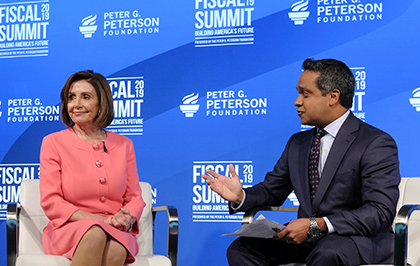
2019 Fiscal Summit
Building America's Future
The tenth-annual Fiscal Summit convened voices from across the political and ideological spectrum to explore the connection between fiscal sustainability and America’s ability to meet its most critical challenges.
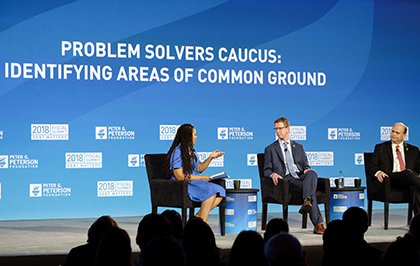
2018 Fiscal Summit
Debt Matters
The ninth-annual Fiscal Summit convened voices from across the political and ideological spectrum to examine the urgent need for a fiscal reset that puts America on a sustainable course for economic growth and prosperity.
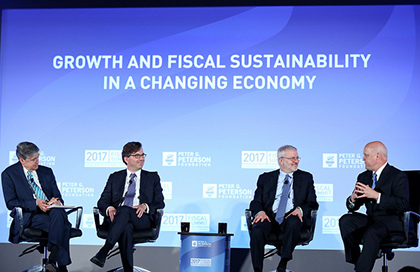
2017 Fiscal Summit
Rising Debt in a Changing Economy
The 2017 Fiscal Summit convened leading voices and policymakers from across the political spectrum to discuss the legislative agenda, its connection to our growing national debt, and solutions to put us on a better path.

2016 Fiscal Summit
Leadership for a Secure Future
The 2016 Fiscal Summit provided a national platform for essential election-year conversations.
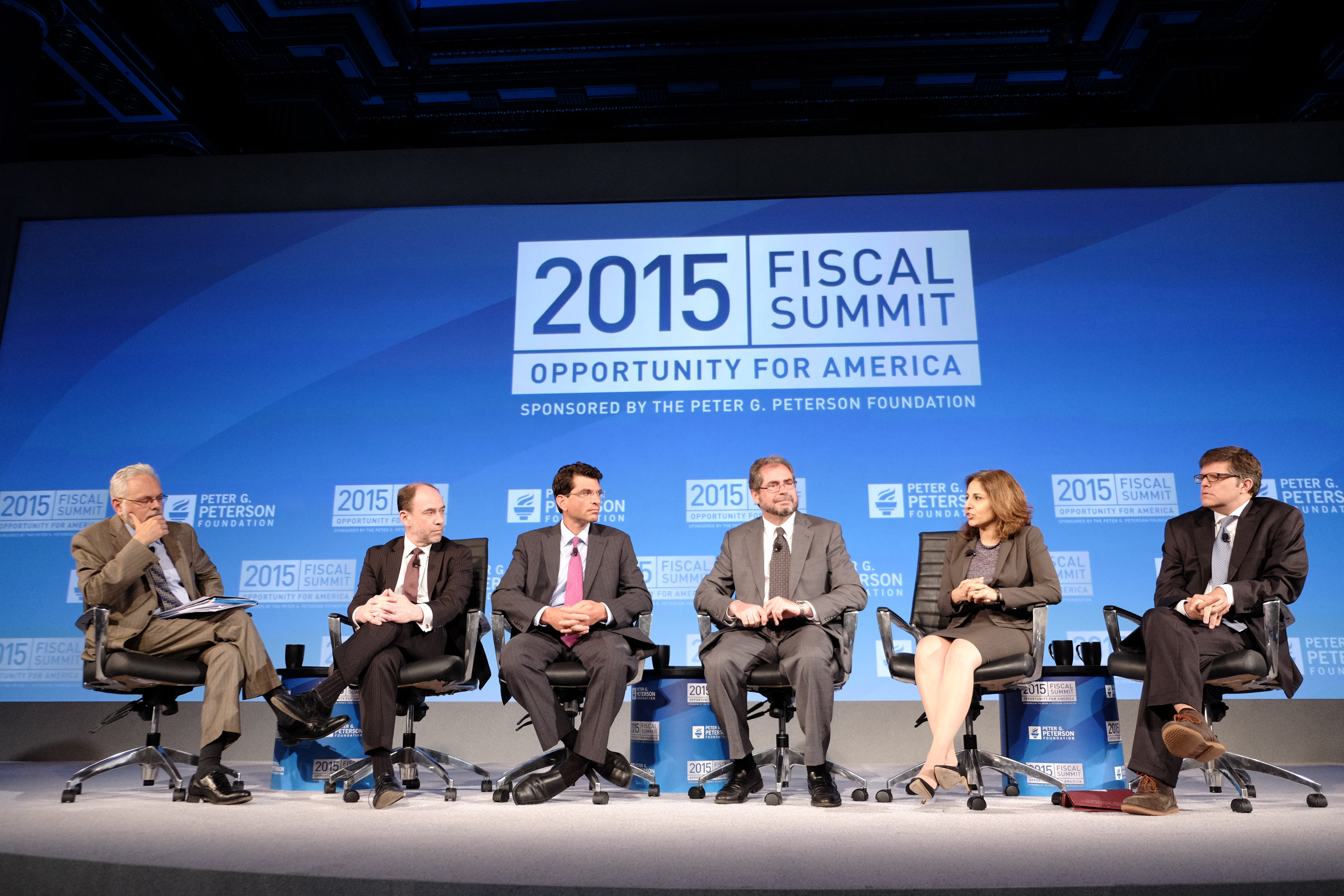
2015 Fiscal Summit
Opportunity for America
With progress made, but serious work still to be done, the Peter G. Peterson Foundation held its sixth-annual Fiscal Summit, titled "Opportunity for America" on May 19, 2015 in Washington, D.C.
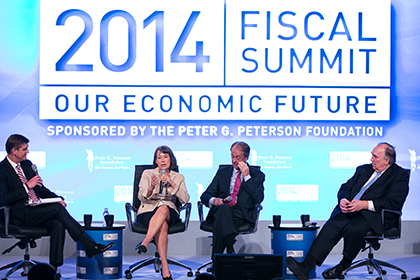
2014 Fiscal Summit
Our Economic Future
The 2014 Fiscal Summit explored what we, as a nation, have to gain if we act now to strengthen our fiscal foundation; promote a growing, thriving economy; and ensure that our future isn’t diminished by our past.

2013 Fiscal Summit
Facing the Future
Despite a challenging political environment, the opportunity remains for the U.S. to solve its long-term debt problem and position the nation for future economic success and a continued leadership in the world.
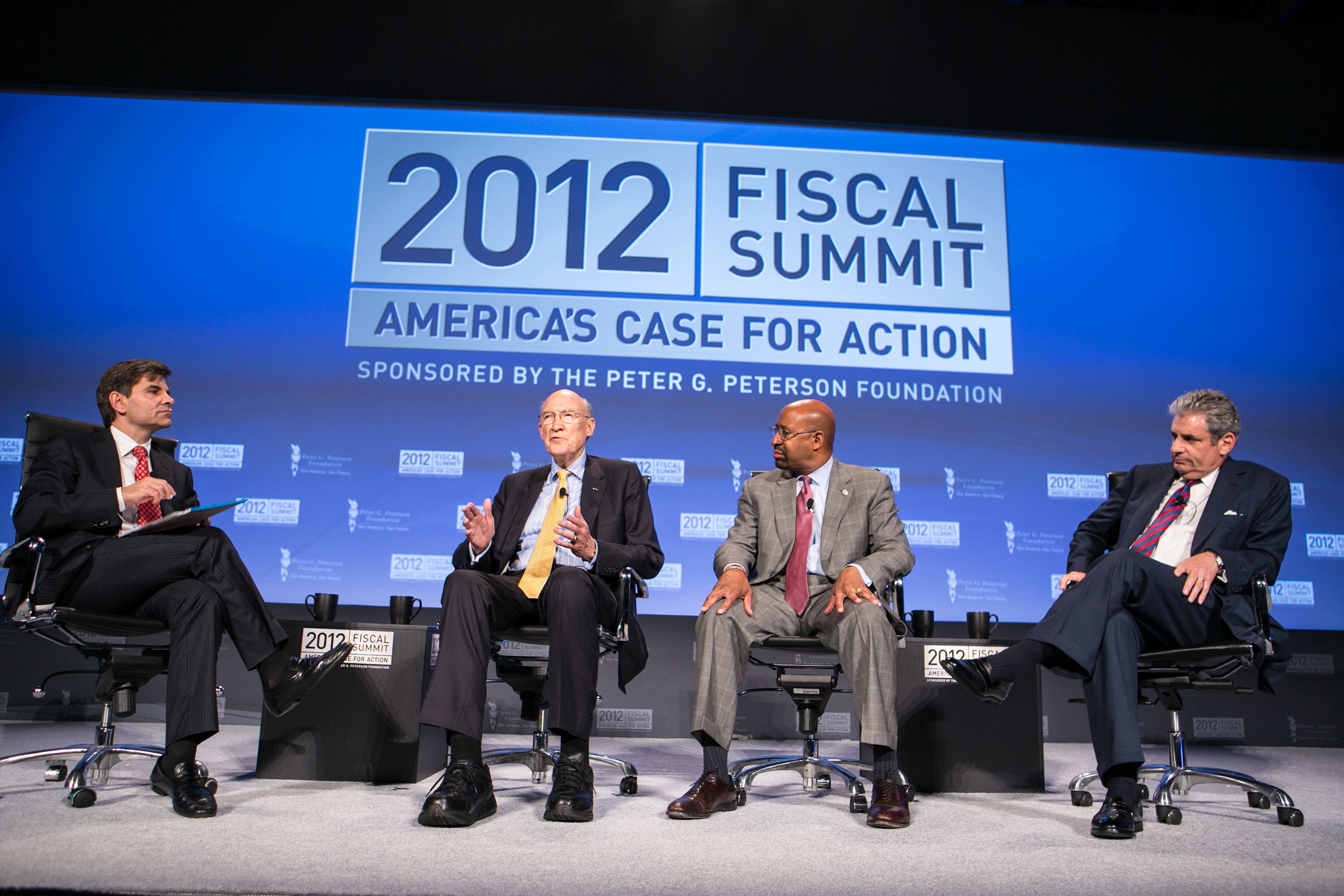
2012 Fiscal Summit
America's Case for Action
With a national election that fall, and critical fiscal deadlines at the end of the year, policymakers faced a prime opportunity to set America on a fiscally sustainable path.
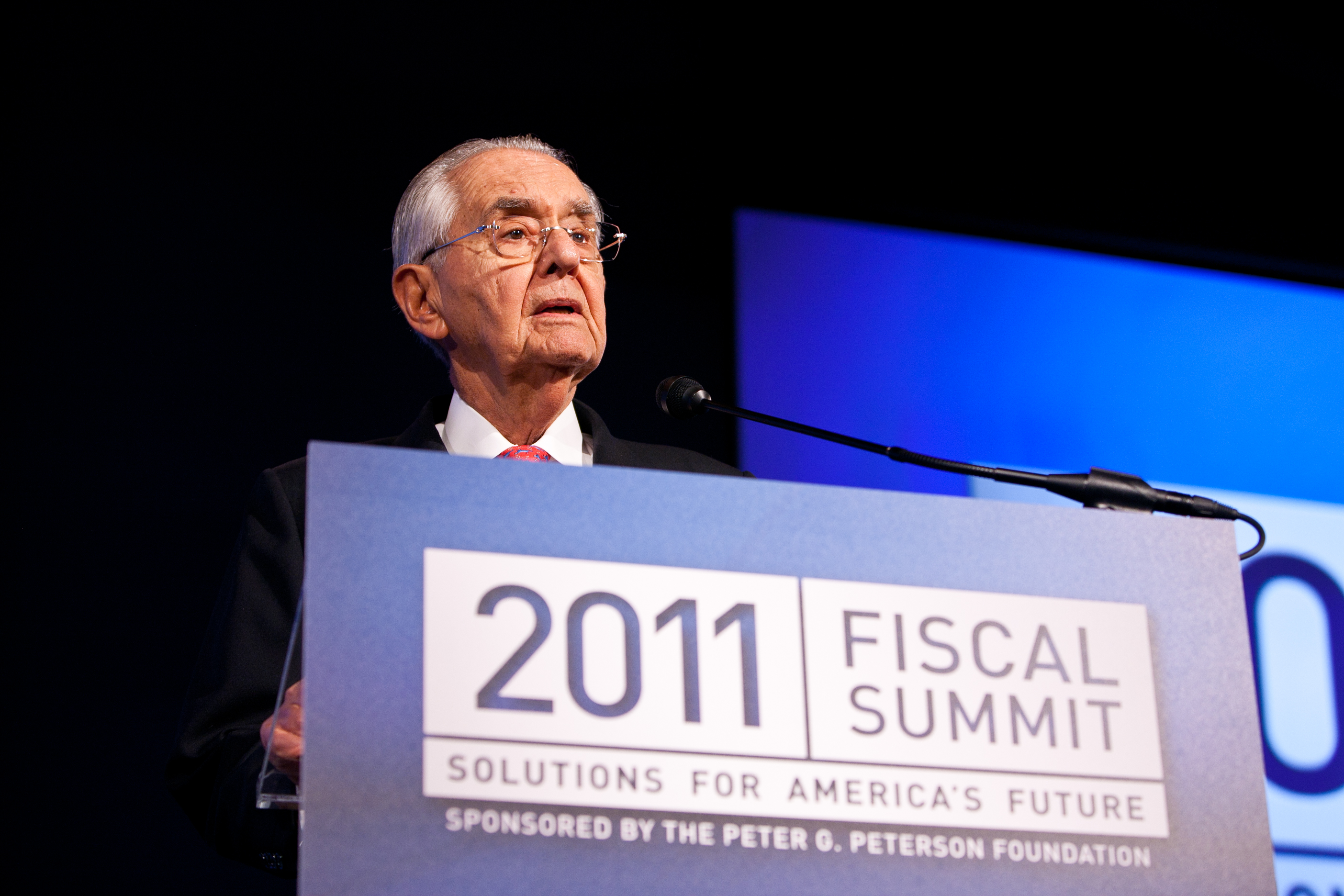
2011 Fiscal Summit
Solutions for American's Future
By convening leaders from across the ideological spectrum to discuss concrete budget plans, the 2011 Summit was an important step in working toward bipartisan fiscal solutions that help preserve the American Dream for future generations.
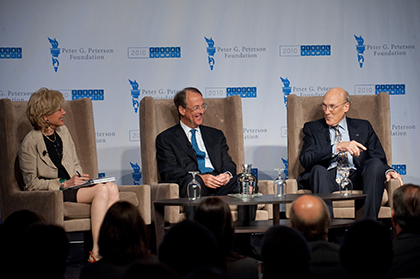
2010 Fiscal Summit
America's Challenge and a Way Forward
The Fiscal Summit brought together hundreds of prominent stakeholders from across the political spectrum with diverse ideas on how to address critical fiscal issues, while continuing to meet the priorities of the American people.
